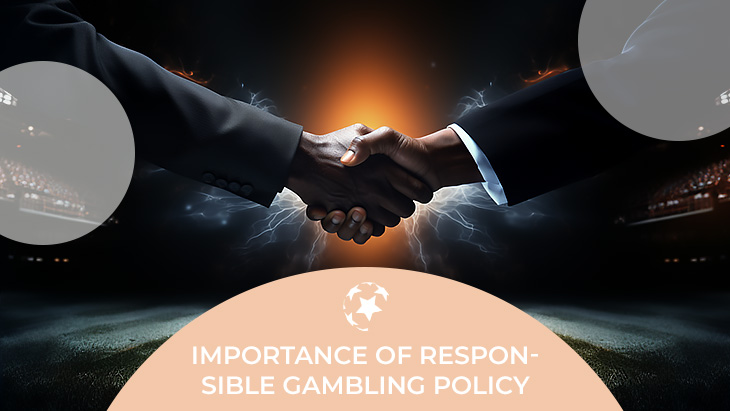Ugandans are big gamblers. And their numbers have surged in recent years. Do they all, however, have exceptionally positive betting experiences? Sadly, not every one of them. In this article, we discuss the hidden dangers of gambling and strategies for addressing them.
The Epoch of Sports Betting Thrive

Gambling has always been here. It was only reshaped over time by going from flipping a coin to clicking a button on a smartphone. There was no point in ignoring the huge interest of the Ugandan population in gambling, so the activity was made lawful in the mid-1900s.
After becoming legal, the entertainment gained even more followers. But the real heyday of the industry came in the 2000s. The Internet was the reason. Thanks to the trailblazing technology, betting was now within arm’s reach.
Copious online venues—websites and applications—emerged as key participants in the industry. Today’s actors are dеtailed at https://bettinguganda.ug/, a major observer of the domestic gambling market.
New opportunities contributed to the flourishing of betting activities, largely due to technological advancements. Thus, a punter can wager now not only on actual horse races but also on computer-simulated ones. The online entertainment scope also includes
- lotteries;
- casinos;
- slot machines;
- instant-win games;
- jackpots;
- card games;
- table games;
- esports betting.
Current Situation in Uganda
Uganda is one of Africa’s top 5 gambling nations. As for market growth, it could vie for the leading position. All of this has real-world explanations, such as the rise in income and the accessibility of mobile devices with fast Internet and immediate payment solutions.
What’s more, Uganda is the second youngest country on the continent, with a great passion for sports and a traditional devotion to games of chance. And the self-isolation period during the COVID-19 pandemic cemented online gambling in the region.
Of course, regulation is essential for an industry expanding at such a rapid pace. The National Lotteries and Gaming Regulatory Board (NLGRB) is the principal authority fulfilling this role in the country. The body acts under the legislative guidelines last adopted in 2016.
The Board’s job is not an easy one. On the one hand, it has to curb the snowballing industry. On the other, it has to be careful not to kill or even harm the golden goose: the sector pays the government tens of billions of USh in tax revenue annually.
The gambling tax policy is an example of the NLGRB’s tightrope walking. The tax rate was raised to 35% in 2017 but then lowered to 20%. In 2023, the rate was hiked to 30%. However, an exception was made for sports betting, whereby the tax remained at 20%.
Potential Psychological Problems Caused by Uncontrolled Sports Betting
In addition to collecting bookmakers’ taxes, the national regulator has an array of other responsibilities. One of them is safeguarding players from the negative consequences of gambling. And unfortunately, there are quite a few of them.
Indeed, a thrilling pursuit that generates income for all its participants — the state, operators, and players — has its side effects. Among these are psychological issues. When betting, it’s hard to stay cold-blooded and self-possessed.
Placing a stake means getting financially and mentally involved. And when you start gambling out of control, you also begin to lose self-control.
Addiction and Compulsive Behavior
Bet after bet, punters risk becoming addicted to this activity. But how do you know if your pastime has turned problematic? If the temptation to gamble is overwhelming and you give in to it, even though it hurts you and the people around you, then there is a problem.
Psychologists categorize this devastating condition as an addictive disorder similar in characteristics to alcohol and drug addictions. Although, unlike these two, it may not manifest itself physically. Here are some clear signs of gambling getting compulsive:
- It takes more money than is available.
- It’s tough to stop playing at any moment.
- There’s an intense urge to chase losses.
- Placing wagers is a closely kept secret.
- Betting is a constant and obsessive thought.
Emotional and Mood-Related Issues
At some point, gambling addiction inevitably comes to the surface as a severe emotional problem. It’s a known fact that betting is not a sure way to win. Chance matters a lot. And when your luck runs out, it can’t help but affect your feelings and emotions.
Mere bad moods can shift to more persistent and pathological conditions such as stress, anxiety, depression, and even more dangerously suicidal thoughts. Betting failures and the inability to quit often lead to frustration, dissatisfaction, and lowered self-esteem.
Mood swings drastically diminish the quality of life of addicted gamblers, causing troubles in their personal lives and social interactions. Those around them suffer, too.
Interpersonal and Social Challenges
Problem gambling unavoidably impacts a punter’s daily life. Family and loved ones are the first to notice that things go wrong. The afflicted person begins to withdraw and self-isolate. As a result, time spent with family and friends is significantly reduced.
The professional sphere is also seriously affected. The addicted have difficulty concentrating and carrying out responsibilities. Thus, studies or work are pushed to the background, and colleague relationships deteriorate. A ruined career, school dropout, or job loss comes next.
Compulsive gamblers feel helpless and lonely because they cannot share their problem and seek help from people close to them due to guilt and shame.
Financial and Practical Consequences
Uncontrolled betting leads to irrational spending. Afflicted bettors act impulsively and stake everything down to the last shilling. As the addictive disorder progresses, players go beyond their initial bankroll and soon wager more money than they can afford.
With decreased concentration and depressed morale, punters cannot correctly assess the situation. Consequently, they make mistakes and lose, but it only fuels the desire to bet more and win back. When running out of their own funds, the addicted can resort to:
- borrowing;
- bank loans;
- selling things;
- theft and other crimes.
Problem gamblers have major financial difficulties. They’re unable to pay their bills and provide themselves and their family with the necessities of life.
Coping Mechanisms and Co-Occurring Problems
Recognizing a problem is half the battle. However, afflicted punters do struggle with acceptance. They deny reality because the truth hurts. Either they rationalize by finding excuses for themselves. Or they take to other defense mechanisms.
Trapped in their addiction, people may try to cope with it. But a melancholic mind suggests bad solutions. Self-harm may be one of them. To escape the stressful environment, players can get even more stuck in wagering or develop other addictive behaviors.
Co-occurring issues may include substance abuse, such as alcohol and drug use, mental illnesses, neurological disorders, and heart diseases.
How Can You Help a Person With Sports Betting Addiction

Getting rid of gambling addiction requires a great deal of physical and mental power, which addicted bettors rarely possess. Therefore, those around them should lend a helping hand. Acting gently is a good rule of thumb here.
Open and Non-Judgmental Communication
Compulsive gamblers are not only reluctant to acknowledge the problem but also unwilling to discuss it, so any attempts to talk may be met with irritation and even aggression. It’s critical to initiate such a conversation in a calm and friendly manner.
You ought to create a safe and trusting atmosphere so that your loved one in trouble feels that they can open up and will be understood. Conversely, a preaching and judgmental tone will cause the person to shut down and stop coming forward.
Threats and criticism don’t work either. You can talk about your feelings honestly but emphasize caring and wanting to make things right. You’re not here to blame but to help.
Support and Encouragement
Addicted punters are vulnerable as their self-esteem is lowered and their self-confidence is heavily shaken. Giving them faith and support is a crucial task for family and friends. Players need to know they’re not alone and have someone to lean on.
Betting-dependent people should always be able to do other things to take their minds off it. So it’s very helpful to encourage them to spend more time with their friends and family members. Active participation in study and work projects can also assist a lot.
Overcoming addiction isn’t easy, and you have to be prepared that it can last a long time and there will be both successes and failures. You may even have to start over more than once.
Help With Practical Steps
It’s feasible to stop compulsive gambling by following the tried and true tips. And you can become that very tipster for your dear one who’s in trouble. Thankfully, there’s plenty of information from professionals on the Internet. Here are a few actionable hints:
- Make betting a hobby with clearly allocated time, not a way to make a living.
- Use the self-exclusion option on a gaming site to avoid the temptation to play.
- Take control of your funds by blocking credit cards or setting withdrawal limits.
- Cut off access to money by delegating the management of the family budget.
- Let those around you know about your problem so they don’t lend you money.
- Find alternative activities such as sports, watching movies or TV shows, etc.
- Avoid staying alone yourself, go out more often, meet friends, and socialize.
- Instead of gambling, give adrenaline an outlet through extreme activities.
Sticking to the guidelines above can aid in the battle against addiction. However, if your loved one is having a hard time dealing with the problem, you should enlist the help of experts in the field.
Soft Encouragement to Seek Professional Help
Keeping in mind the gentle approach, recommending professional help should be done softly and carefully. First, you need to find out about the hotlines, services, and clinics available nearby. You can also consult a mental health professional in person.
Before making an appointment with a doctor, you can advise your gambling-addicted relative to read valuable sources about the disorder and ways to overcome it. The player can also take an online test to identify the problem and understand its size.
A betting-dependent person should know that seeking help is fine; it’s not a sign of weakness but rather the opposite. And in some cases, handling an issue is impossible without professional assistance. The recovery methods may comprise:
- support groups;
- psychotherapy sessions;
- cognitive therapy;
- behavioral therapy;
- rehabilitation programs;
- medication treatment.
Importance of Responsible Gambling Policy

Gambling itself is neither illegal nor shameful. But there are always two sides to the coin, and everything depends on the attitude of a particular punter. With a responsible approach, addiction is not a threat. And avoiding problems is always better than solving them.
Awareness is the first step in preventing disaster. People must be aware of all of the potential risks associated with gambling and how to mitigate them as much as possible. Therefore, transparency and honesty must reign at bookmaking platforms.
Awareness is a paramount tenet of the responsible gambling policy that every decent operator must have in place. The policy aims to protect people, especially minors, from the harmful effects of uncontrolled betting.
Responsible gambling is always the focus of expert resources observing the online gaming sector. National information portals like https://bettinguganda.ug/ constantly raise awareness and emphasize a safe and responsible approach to betting activities.
Conclusion
Hordes of Ugandans use gambling as a way to pursue their passion with nice financial returns. However, for some of them, betting has undesirable effects, such as addiction. The industry knows how to handle and prevent this. With that, personal responsibility comes first.


